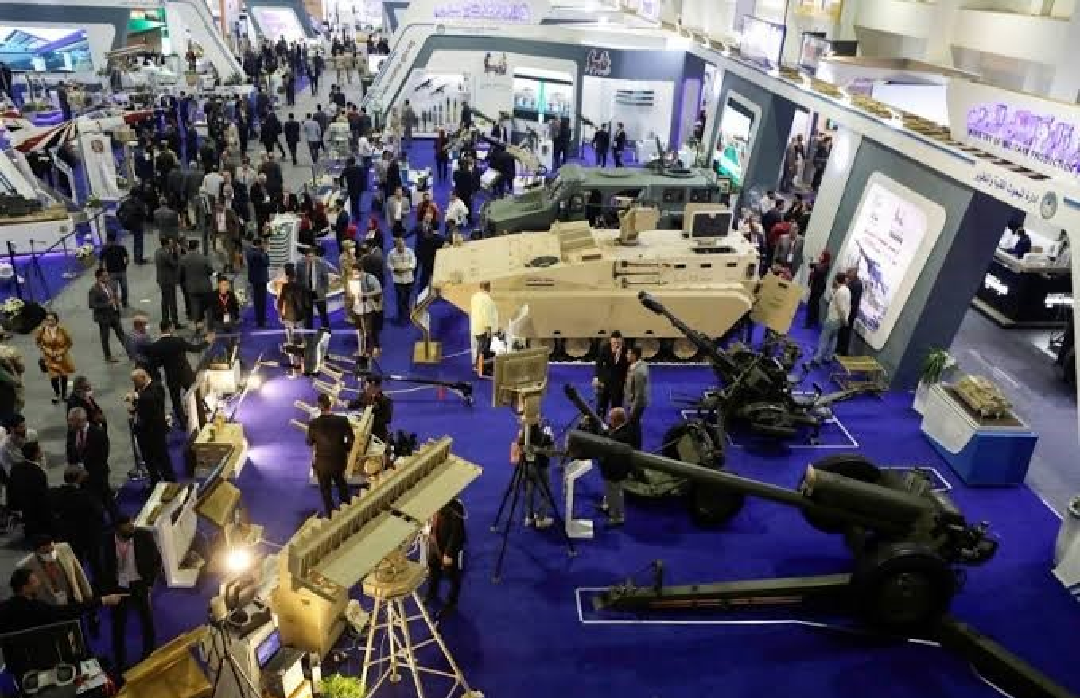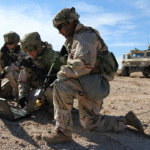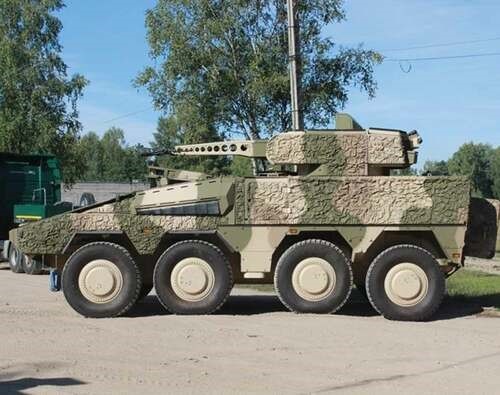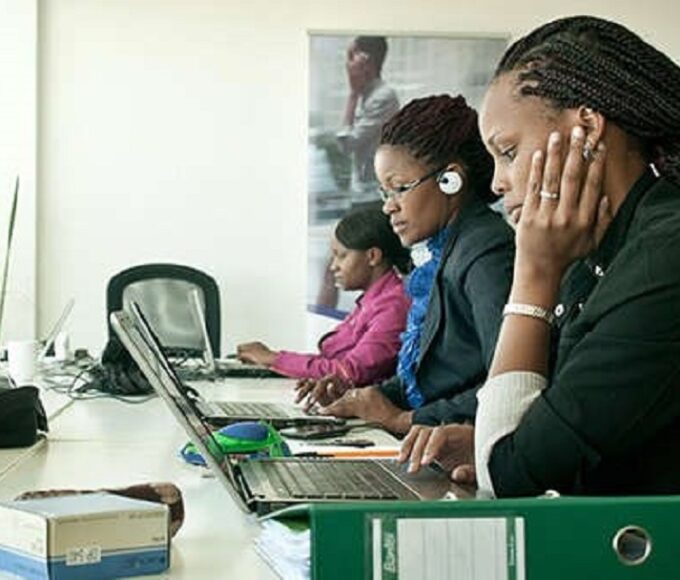
WHY IT MATTERS FOR AFRICA
The Egypt Defence Expo (EDEX) has quickly established itself as one of the world’s premier defence events. Launched in 2018, the biennial exhibition showcases cutting-edge technologies across land, sea, and air, making it a critical platform for military innovation. Fully supported by the Egyptian Armed Forces and held under the patronage of President Abdel Fattah El-Sisi, the event highlights Egypt’s ambition to be a central hub for global defence cooperation.
To begin with, EDEX filled an important gap in North Africa by creating a dedicated forum for defence stakeholders. Today, it is the only defence and security exhibition covering both Africa and the Middle East, reinforcing Egypt’s strategic role as a bridge between continents. The event attracts global attention, bringing together militaries, industry leaders, and policymakers to negotiate, collaborate, and exchange ideas.
Related Article: DSEI 2025: Navigating the Fine Line Between Defence and Peace
Building on this foundation, the fourth edition, scheduled for December 1–4, 2025, is expected to surpass previous records. The 2023 expo drew more than 35,000 visitors from 86 countries and featured 401 exhibitors from 46 nations. The upcoming edition promises even greater diversity, with live demonstrations, seminars, and networking sessions offering practical insights into emerging technologies such as drones, armoured vehicles, and cybersecurity solutions.
More importantly, EDEX holds particular significance for Africa at a time when the continent faces mounting security challenges. From terrorism in the Sahel and insurgencies in the Horn of Africa to piracy along key maritime routes, African nations require adaptable, affordable solutions. The expo provides a rare opportunity for them to access advanced defence tools, learn from international best practices, and forge strategic partnerships.
In addition, EDEX democratizes access to military innovation. Smaller African militaries often constrained by resources can interact with global players like the United States, Russia, China, and major European firms. This inclusivity helps level the playing field, enabling resource-limited countries to explore procurement, partnerships, and joint ventures that would otherwise remain out of reach.
At the same time, Egypt’s hosting of EDEX reflects its growing leadership in African and Middle Eastern security affairs. As the continent’s most populous nation and a key African Union member, Egypt uses the expo to showcase its expanding defence industry, including domestically produced weapons and systems increasingly exported across Africa. By diversifying away from reliance on single suppliers, particularly the U.S., Egypt positions itself as a manufacturing and trade hub. For other African countries, this creates opportunities to acquire equipment better suited to local environments whether for desert operations or coastal patrols at more accessible costs.
Furthermore, EDEX’s impact extends beyond the showcasing of equipment. It provides a platform to directly address Africa’s pressing security issues. Exhibitors highlight solutions for counter-terrorism, border security, and peacekeeping all highly relevant to African contexts. Regional delegations use the event to exchange strategies, strengthen alliances, and build collective resilience against transnational threats.
Equally significant are the economic benefits. The expo stimulates defence-related investment and industry development, often initiating deals worth billions. Egypt’s role as the world’s third-largest arms importer allows it to act as a channel for redistribution, while local manufacturing partnerships foster technology transfers. Countries such as South Africa, Nigeria, and Morocco can benefit by developing indigenous industries, reducing import dependence, and creating skilled jobs in engineering, logistics, and supply chains.
Beyond economics, EDEX encourages knowledge exchange. Strategic alliances formed at the expo often lead to joint training, intelligence sharing, and research collaborations. African forces gain exposure to innovations such as AI-driven surveillance or renewable energy systems for military bases—technologies that can be adapted to local needs. This helps close the gap between African militaries and their global counterparts, strengthening their ability to respond to asymmetric threats.
Taken together, these factors make EDEX more than an exhibition. It is a catalyst for Africa’s security, economic growth, and technological advancement. By centralizing global expertise and resources in Cairo, the event gives African nations a rare chance to build resilient defences and foster cooperation in an era of uncertainty.
Looking forward to the 2025 edition, the expo is set to expand its influence further, reinforcing Egypt’s leadership and solidifying Africa’s role in the global defence landscape. For the continent, EDEX is not just about military hardware it is about building partnerships, sharing knowledge, and shaping a more secure future.
King Richard Igimoh, Group Editor ALO
King Richard Igimoh, Group Editor African Leadership Organisation is an award-winning journalist, editor, and publisher with over two decades of expertise in political, defence, and international affairs reporting. As Group Editor of the African Leadership Organisation—publishers of African Leadership Magazine, African Defence & Security Magazine, and Africa Projects Magazine—he delivers incisive coverage that amplifies Africa’s voice in global security, policy, and leadership discourse. He provides frontline editorial coverage of high-profile international events, including the ALM Persons of the Year, the African Summit, and the African Business and Leadership Awards (ABLA) in London, as well as the International Forum for African and Caribbean Leadership (IFAL) in New York City during the United Nations General Assembly.
Recent Posts
Categories
- Air & Aerospace16
- Border Security15
- Civil Security4
- Civil Wars4
- Crisis5
- Cyber Security8
- Defense19
- Diplomacy19
- Entrepreneurship1
- Events5
- Global Security Watch6
- Industry8
- Land & Army8
- Leadership & Training5
- Military Aviation5
- Military History27
- Military Speeches1
- More1
- Naval & Maritime9
- Resources2
- Security12
- Special Forces1
- Systems And Technology9
- Tech6
- Uncategorized3
- UNSC1
- Veterans6
- Women in Defence9
Related Articles
DEFENCE OFFSETS AND LOCAL MANUFACTURING: ARE AFRICANS BENEFITING?
Defence offsets have become a central feature of global arms procurement, particularly...
ByKing Richard Igimoh, Group Editor ALOJanuary 9, 2026AFRICA’S DEFENCE FUTURE IN A MULTIPOLAR WORLD
Global power is no longer dominated by a small circle of superpowers....
ByKing Richard Igimoh, Group Editor ALOJanuary 2, 2026TECHNOLOGY TRANSFER: WHAT AFRICA GAINS FROM GLOBAL DEFENCE PARTNERSHIPS
As geopolitical alliances realign, African countries are rethinking how they secure their...
ByKing Richard Igimoh, Group Editor ALODecember 18, 2025AFRICA’S DEFENCE INDUSTRIES AT A TURNING POINT
Africa’s defence industries stand at a critical moment. Although the continent spends...
ByKing Richard Igimoh, Group Editor ALODecember 12, 2025












